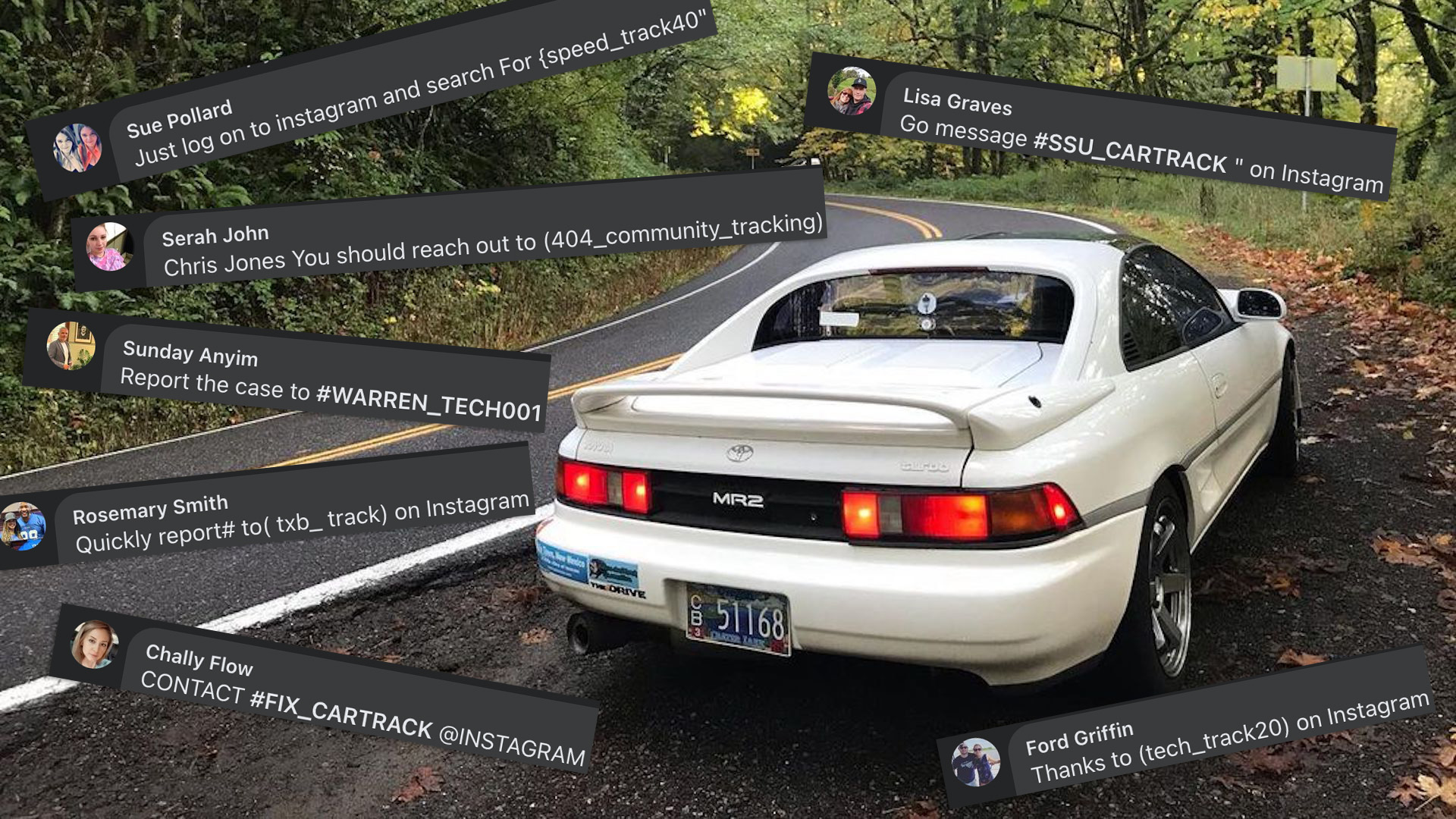

On Tuesday, my 1991 Toyota MR2 Turbo vanished from the street in front of my home. It sent my head spinning as I spent hours on the phone with police and insurance and posted watch notices to Facebook all the while. I was confused, desperate, and vulnerable: The perfect prey for online scammers.
Within minutes of my first post on Facebook, I got a message on Instagram promising a tip. An account claiming to be a stolen vehicle recovery service said it had a report, and invited me to send over my license plate number and VIN. It was exactly the news I wanted to hear—and a red flag.

For starters, it had been barely 15 minutes since I made my first post, and not an hour since I noticed the car was missing. The message itself was poorly written, not the professional communique you’d expect of a business representing itself. Then there was the fact that this “business” had only a few hundred followers, no website, and a highly suspicious line in its bio: “100% cash refund if job not completed.”
The account itself seems to be named for Mapon, a legitimate fleet vehicle tracking service, but that clearly wasn’t who had messaged me. Looking back through its posts, I found one claiming to show vehicles and parts recovered in a police sting—but instead of attributing itself, it dropped the name of another, nonexistent account. Looking up that name turned up another account with a near-identical name that had posted the one of the same images purporting to be of a recovered car.




My guess is that the caption was lazily copied over from the post of a previously banned account. Between that, the conspicuously similar accounts, and expecting money up front, it was obvious I was dealing with a scammer. Unfortunately, the more my fellow car enthusiasts tried to help me, the more the swindlers piled on.
When my local friend Andy Lilienthal of Crankshaft Culture gave my posts a signal boost, dozens of bot accounts flooded the comments. They all tried to funnel toward suspicious, obviously mass-generated Instagram accounts that all claimed to offer car tracking and recovery services. Though Andy deleted these comments to help real leads rise to the top, a cursory search of Facebook reveals this is common with any public theft post. For an example, just check the comments on this report of a 1983 Ford Mustang GT stolen out of Berea, Kentucky.

I was lucky enough to find my car dumped just a few blocks away, with minimal damage. (It’s currently in secure storage until GPS trackers arrive.) But some people aren’t so lucky, and for them to face online predators on top of losing what might be their only transportation is unconscionable. Unfortunately, social media platforms run by Meta such as Facebook and Instagram are overrun with these kinds of scams. Without a long-overdue crackdown, they’ll continue to propagate.
Your only defense is your skepticism. And if you don’t have your wits about you when your car disappears, you may lose more than your vehicle.

Got a tip or question for the author? You can reach them here: james@thedrive.com